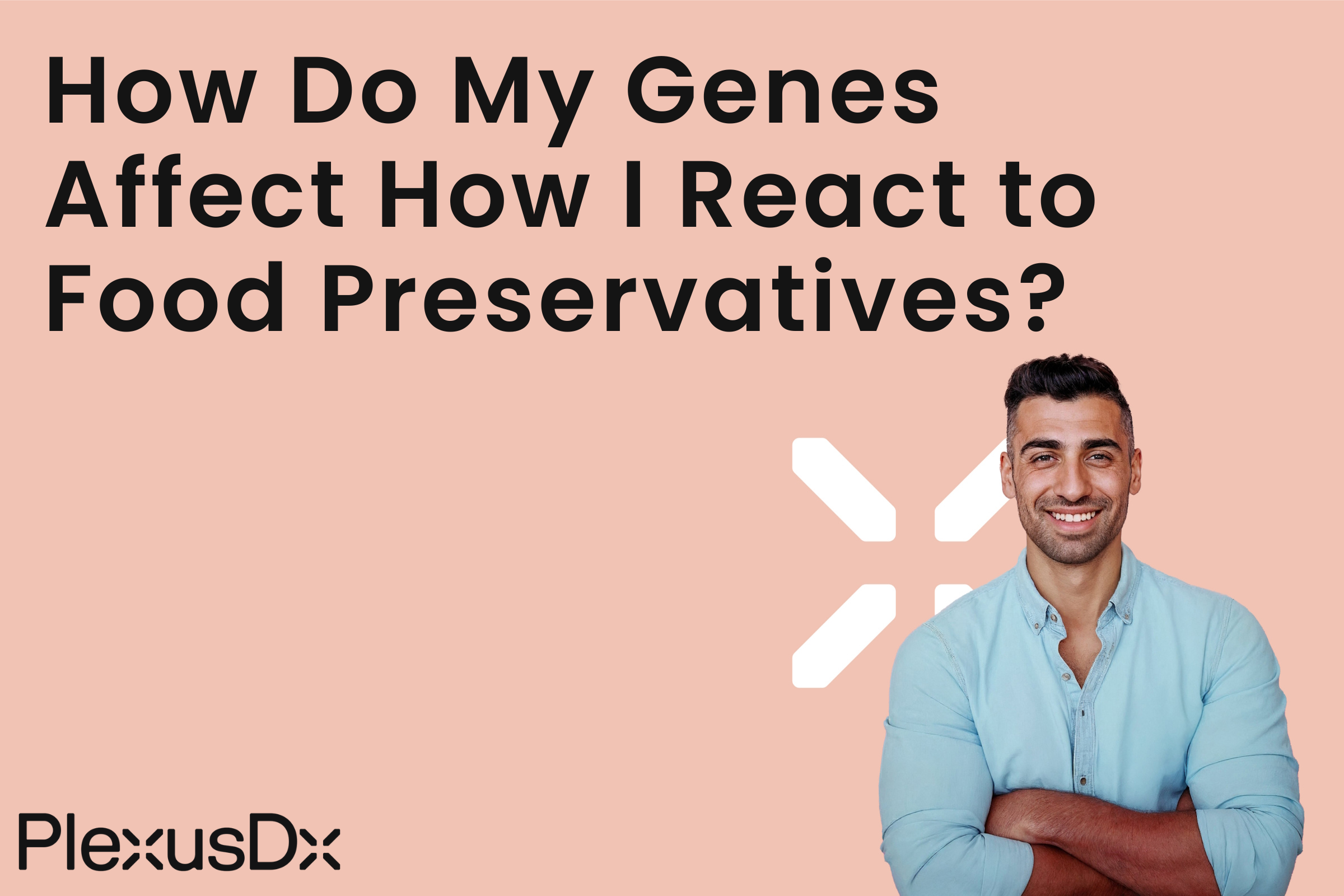My Genetic Makeup and Food Preservatives
My genetic makeup can affect how my body responds to food preservatives.
Why do some people eat processed snacks with ease while others suffer from digestive issues and adverse reactions? The answer may lie in your genes. Understanding your genetic makeup's effect on preservative sensitivity helps you make better food choices. This article examines the relationship between genetics and food preservatives to assist you in making informed dietary choices.
The Genetic Connection to Food Reactions
While food preservatives work to maintain product freshness and enhance taste they trigger negative reactions among certain population groups. Your genetic makeup serves as the main factor which determines how your body processes food preservatives. Specific genes encode the genetic instructions needed to produce enzymes that break down food additives. Variations in CYP450 enzyme genetics cause different processing of food additives which results in various bodily responses.
Some people possess a genetic predisposition that increases their sensitivity to specific preservatives. Certain GST gene variants impair detoxification processes that increase susceptibility to sensitivities from food additives. Some people eat chips without any negative effects while others suffer from headaches digestive problems or allergic reactions.
Personal anecdotes can illustrate this point. Take Sarah, for example. Her consumption of processed snacks for many years resulted in stomach cramps and skin rashes. Genetic analysis during professional healthcare assessments revealed that her body couldn’t metabolize specific preservatives due to her genetic makeup. By understanding the impact of preservatives on her body she could make a switch to fresh whole foods for her nutrition.
Understanding Common Food Preservatives
When consumers educate themselves about common food preservatives and their effects they are better equipped to choose healthier food options.
- Sodium Benzoate: The preservative present in soft drinks and pickles triggers allergic responses in sensitive individuals.
- Sulfites: Some individuals experience asthma symptoms from sulfites which exist in both dried fruits and wines.
- Propyl Gallate: Those who respond negatively to this antioxidant present in processed foods risk developing skin irritation and gastrointestinal problems.
- Artificial Colors: Children experience hyperactive behavior and some adults develop allergic reactions after exposure to artificial colors which operate independently from preservatives and mix with chemical additives.
Understanding preservative effects allows consumers to select foods that fulfill their specific health needs.
Practical Advice for Managing Food Preservative Reactions
Knowing how your genes affect your body allows you to apply practical methods which improve control over your reactions to food preservatives.
- Get Genetic Testing: PlexusDx conducts genetic tests which allow you to determine how your body reacts to different food additives. These tests show how your body reacts to different food additives which helps you find out if you have any sensitivities. By understanding your genetic predispositions you can identify food choices that support your unique nutritional requirements.
- Read Labels Carefully: Become a label detective! Learn the names of widely used preservatives. Choose food products that avoid all synthetic preservatives and additives. Purchasing organic products and minimally processed foods enables you to reduce your consumption of dangerous preservatives.
- Keep a Food Diary: Patterns emerge through monitoring what you eat alongside your body's responses to these foods. Document all physical reactions you experience when eating foods containing preservatives. When consulting with your healthcare provider about food choices you need to have dietary information available.
- Consult with a Healthcare Provider: Seek professional healthcare advice before you implement significant adjustments to your eating patterns or daily schedule. Healthcare professionals offer personalized health and nutrition advice after analyzing genetic test outcomes to meet your specific requirements.
- Focus on Whole Foods: Whenever possible, prioritize whole, unprocessed foods. Fresh fruits and vegetables along with whole grain products and lean proteins generally lack preservatives and additives. By cooking your meals at home you gain control over the ingredients you consume which lowers your exposure to unwanted chemicals.
Conclusion
Your genetic profile determines the way your body reacts to food preservatives. Understanding how your genetics react to food additives helps you choose foods which support your individual health requirements. Through Precision Health & Wellness testing from PlexusDx you can identify your genetic predispositions and their effects on your body’s response to food preservatives. Both PlexusDx.com and online retail platforms such as Amazon and Walmart offer PlexusDx tests for purchase.
Remember, knowledge is power. Understanding your genetic makeup helps you understand health effects which enables you to choose better food preservatives for enhanced well-being.
Where to Buy PlexusDx Genetic Tests
Ready to take control of your health with precision genetic insights? You can purchase the PlexusDx Food Sensitivity and Allergy Genetic Test from these trusted retailers:
- 👉 PlexusDx – Order directly from our official website.
- 👉 Amazon – Convenient shopping with fast shipping.
- 👉 Walmart – Buy online from a trusted retailer.
Get your personalized DNA insights today and start optimizing your health! 🚀

Share:
Can a DNA Test Show If I Have Trouble Concentrating?
Can a Functional Genetic Test Help me Understand my Risk for Adrenal Fatigue?